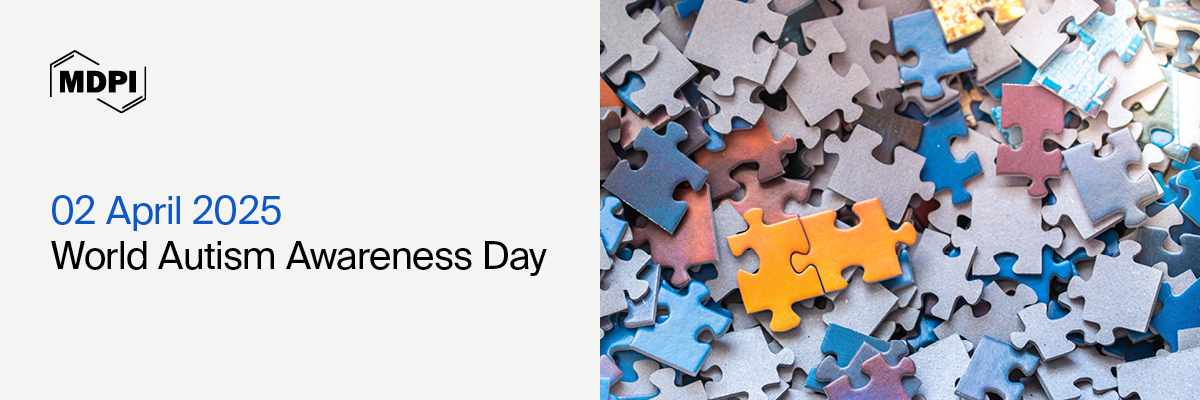
World Autism Awareness Day—“Advancing Neurodiversity and the UN Sustainable Development Goals (SDGs)”, 2 April 2025
Autistic individuals contribute uniquely to society, bringing diverse perspectives, creativity, and innovation. Recognizing and valuing neurodiversity fosters more inclusive communities where individuals with autism can thrive. However, many face challenges in accessing education, employment, healthcare, and social support due to systemic barriers and misconceptions. By strengthening inclusive policies, support networks, and awareness efforts, we can create environments that empower autistic individuals to reach their full potential while ensuring their rights, dignity, and well-being.
In recognition of the International Day of Autism Awareness, observed annually on 2 April, we celebrate the contributions of autistic individuals and reaffirm our commitment to promoting inclusion and acceptance. The theme for this year’s World Autism Awareness Day, “Advancing Neurodiversity and the UN Sustainable Development Goals (SDGs)”, emphasizes the importance of integrating neurodiversity into global development efforts, ensuring that autistic individuals are included in the pursuit of the SDGs. We highlight a selection of relevant articles, Special Issues, and journals spanning disciplines such as psychology, education, public health, and social sciences. Through the dissemination of research, we aim to deepen understanding, promote acceptance, and encourage practical solutions that enhance the lives of autistic individuals. By fostering awareness and advocacy, we can work toward a more inclusive, supportive, and neurodiverse society.

| Public Health & Healthcare | Biology & Life Sciences
Medicine & Pharmacology |
Social Sciences, Arts & Humanities |


Invited speakers:
 |
Prof. Dr. Marios Adamou, University of Huddersfield, UK |
 |
Dr. Andrey Vyshedskiy, Boston University, USA |
 |
Dr. Roberto Canitano, Univeristy of L’Aquila, Italy |
Feel free to register for this webinar here.

“Cognitive and Emotional Resilience in Parents with Children with Autism Spectrum Disorder During COVID-19: The Role of Promoting Variables”
by Aziz Sarhani-Robles, Maria Guillot-Valdes, Maria Auxiliadora Robles-Bello and David Sanchez-Teruel
J. Intell. 2025, 13(1), 6; https://doi.org/10.3390/jintelligence13010006
“International Perspectives on Assistive Technologies for Autism and Intellectual Disabilities: Findings from a Delphi Study”
by Paulina Tsvetkova, Carla Sousa, Daniel Beiderbeck, Aneta M. Kochanowciz, Branislav Gerazov, May Agius, Tomasz Przybyla, Merita Hoxha and Alan H. Tkacyz
Disabilities 2024, 4(4), 1138-1155; https://doi.org/10.3390/disabilities4040071
“Validity of the Greek Knowledge About Childhood Autism Among Health Workers (KCAHW) Questionnaire”
by Vasiliki Zarokanellou, Alexandros Gyparis, Evridiki Papagiannopoulou and Vassiliki Siafaka
Psychiatry. Int. 2024, 5(4), 962-974; https://doi.org/10.3390/psychiatryint5040066
“The Feasibility of Whole-Body Vibration Training as an Approach to Improve Health in Autistic Adults”
by Amy Allnutt, Sara Pappa and Michael Nordvall
Disabilities 2024, 4(3), 429-443; https://doi.org/10.3390/disabilities4030027
“The Association between Autism Spectrum Disorder and Precocious Puberty: Considering Effect Modification by Sex and Neuropsychiatric Comorbidities“
by Yi-Chun Liu, Yin-To Liao, Mei-Hong Wan, Vincent Chin-Huang Chen and Yi-Lung Chen
J. Pers. Med. 2024, 14(6), 632; https://doi.org/10.3390/jpm14060632
“Epidemiological Study of Autism Spectrum Disorders in Greece for 2021: Nationwide Prevalence in 2–17-Year-Old Children and Regional Disparities”
by Raissa Kouznetsov, Panagiotis Angelopoulos, Spyridon Moulinos, Ioannis Dimakos, Philippos Gourzis and Eleni Jelastopuly
J. Clin. Med. 2023, 12(7), 2510; https://doi.org/10.3390/jcm12072510

 |
“Mental Health, Innovative Therapies and Assessment in Adolescents and Young Adults and Related Contexts” |
